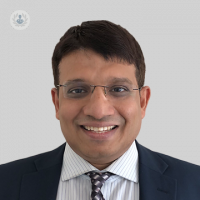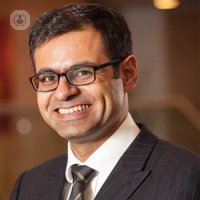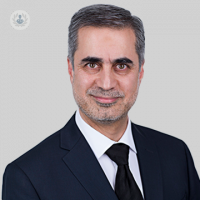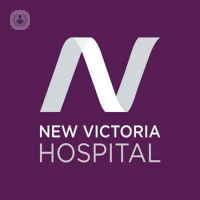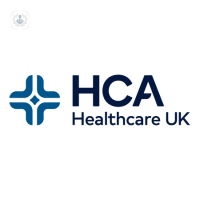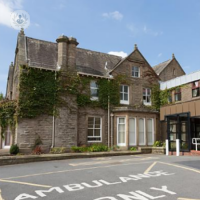What is radiofrequency denervation?
Radiofrequency denervation is an alternative treatment to treat all pain related to the neck and lower back. The denervation is carried out with the use of radio waves that, by heat energy destroy the nerves that are around the spine that generate pain. It’s also known as radiofrequency ablation or facet rhizolysis.
Why is radiofrequency denervation done?
Radiofrequency is done to combat pain generated by natural wear and tear, back injuries, disc wear and arthritis, among other problems. It’s only used when other treatments and physiotherapy have failed.
Radiofrequency solves health problems such as:
- Cervical pain
- Lower back pain
What does radiofrequency denervation involve?
The patient lies on their stomach and the area is numbed. A small thin tube is inserted into the spine over the neck or in the lower back. A special X-ray called a fluoroscope is used to lead the tube to the right place. A wire is then introduced through the tube that is connected to a radio wave generating machine that heats up and removes the nerve.
Preparation for radiofrequency denervation
No special preparation is needed for the test. The treatment can also be carried out alongside other conservative treatments and physiotherapy exercises.
After the procedure
Patients are taken to a recovery room after their procedure to be monitored and may have to lie flat for about 30 minutes or more. Normally they’ll be able to go home after one to three hours but will need someone to drive them home and stay with them for 24 hours. Side effects after the procedure can include numbness, a tingling sensation, mild bruising and tenderness.
Patients may experience pain after the procedure, but this should disappear within one to two weeks. After two weeks patients will begin to notice an improvement in their pain. Patients may also feel a tingling sensation around the area that was operated on. It is likely that the nerve will grow back, but it will not cause as much pain as it did prior to the procedure.
If a headache or fever develops or ongoing numbness or weakness is felt, call the hospital and let them know right away.
Radiofrequency denervation
What is radiofrequency denervation?
Radiofrequency denervation is an alternative treatment to treat all pain related to the neck and lower back. The denervation is carried out with the use of radio waves that, by heat energy destroy the nerves that are around the spine that generate pain. It’s also known as radiofrequency ablation or facet rhizolysis.
Why is radiofrequency denervation done?
Radiofrequency is done to combat pain generated by natural wear and tear, back injuries, disc wear and arthritis, among other problems. It’s only used when other treatments and physiotherapy have failed.
Radiofrequency solves health problems such as:
- Cervical pain
- Lower back pain
What does radiofrequency denervation involve?
The patient lies on their stomach and the area is numbed. A small thin tube is inserted into the spine over the neck or in the lower back. A special X-ray called a fluoroscope is used to lead the tube to the right place. A wire is then introduced through the tube that is connected to a radio wave generating machine that heats up and removes the nerve.
Preparation for radiofrequency denervation
No special preparation is needed for the test. The treatment can also be carried out alongside other conservative treatments and physiotherapy exercises.
After the procedure
Patients are taken to a recovery room after their procedure to be monitored and may have to lie flat for about 30 minutes or more. Normally they’ll be able to go home after one to three hours but will need someone to drive them home and stay with them for 24 hours. Side effects after the procedure can include numbness, a tingling sensation, mild bruising and tenderness.
Patients may experience pain after the procedure, but this should disappear within one to two weeks. After two weeks patients will begin to notice an improvement in their pain. Patients may also feel a tingling sensation around the area that was operated on. It is likely that the nerve will grow back, but it will not cause as much pain as it did prior to the procedure.
If a headache or fever develops or ongoing numbness or weakness is felt, call the hospital and let them know right away.
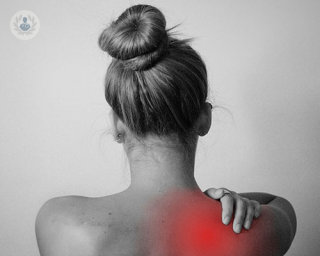

An expert’s guide to radiofrequency denervation
Por Dr Sumit Gulati
2025-01-30
Radiofrequency denervation is a pain treatment that kills or destroys nerve endings. In his latest article, renowned pain medicine consultant Dr Sumit Gulati explains this treatment, offering his expert advice to prospective patients. Ver más
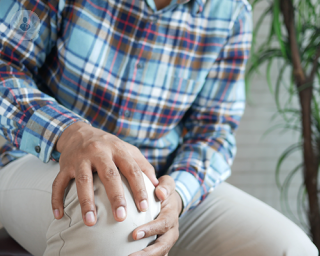

How radiofrequency denervation treats osteoarthritis
Por Dr Andrzej Krol
2025-01-29
Radiofrequency denervation is a novel treatment option for people suffering from chronic pain due to osteoarthritis that can help to enhance quality of life and reduce discomfort. Here, Dr Andrzej Krol, renowned consultant in anaesthesia and pain medicine, provides an expert insight into radiofrequency denervation for osteoarthritis, including its procedure, effectiveness, and compatibility with other treatments. Ver más
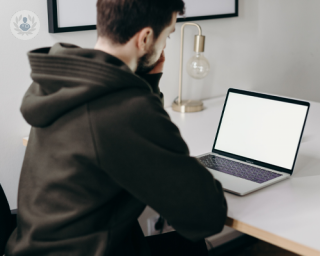

Back pain: Causes, types and treatment
Por Dr Jawaad Malik
2025-01-28
Back pain is a common but no less frustrating condition that can severely affect quality of life. Leading pain management specialist Dr Jawaad Malik discusses the causes, types and treatment, among other aspects of back pain management, in this informative article. Ver más
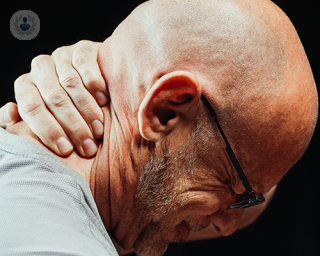

Radiofrequency denervation: Targeted pain relief
Por Dr Andrzej Krol
2025-01-28
Radiofrequency denervation is a novel minimally invasive treatment that can block the nerves that are involved in pain, providing relief for patients and improving quality of life. Here to provide an expert insight into radiofrequency denervation, including its safety, benefits and results, is Dr Andrzej Krol, renowned consultant in anaesthesia and pain medicine. Ver más
Doctores expertos en Denervación por radiofrecuencia
-
Dr Sarang Puranik
Unidad del DolorExperto en:
- Dolor de espalda
- Dolor cervical
- Dolor neuropático
- Dolor crónico
- Denervación por radiofrecuencia
- Infiltraciones articulares
-
Dr Salmin Aseri
Unidad del DolorExperto en:
- Dolor de hombro
- Lumbalgia
- Dolor cervical
- Denervación por radiofrecuencia
- Células madre
- Lesiones deportivas
-
Mr Dan Plev
NeurocirugíaExperto en:
- Cirugía de la columna
- Cifoplastia
- Cirugía de columna mínimamente invasiva
- Discectomía
- Ciática
- Denervación por radiofrecuencia
-
Dr Sumit Gulati
Unidad del DolorExperto en:
- Denervación por radiofrecuencia
- Ciática
- Dolor articulaciones
- Dolor neuropático
- Dolor pélvico
- Dolor de espalda
-
Dr Basil Almahdi
Unidad del DolorExperto en:
- Ciática
- Dolor de espalda
- Tratamiento intervencionista del dolor
- Dolor cervical
- Dolor neuropático
- Denervación por radiofrecuencia
- Ver todos

New Victoria Hospital
New Victoria Hospital
184 Coombe Lane West, Kingston upon Thames, KT2 7EG
No existe teléfono en el centro.
Si haces uso de este teléfono facilitado por TOP DOCTORS nos autorizas al tratamiento de tu teléfono para fines estadísticos y comerciales. Para más información, lee nuestra Política de Privacidad
Top Doctors

The Outpatients and Diagnostic Centre at 30 Devonshire Street (HCA)
The Outpatients and Diagnostic Centre at 30 Devonshire Street (HCA)
30 Devonshire St, London W1G 6PU
No existe teléfono en el centro.
Si haces uso de este teléfono facilitado por TOP DOCTORS nos autorizas al tratamiento de tu teléfono para fines estadísticos y comerciales. Para más información, lee nuestra Política de Privacidad
Top Doctors

Beaumont Hospital - part of Circle Health Group
Beaumont Hospital - part of Circle Health Group
Old Hall Clough, Chorley New Rd, Lostock, BL6 4LA
No existe teléfono en el centro.
Si haces uso de este teléfono facilitado por TOP DOCTORS nos autorizas al tratamiento de tu teléfono para fines estadísticos y comerciales. Para más información, lee nuestra Política de Privacidad
Top Doctors
-
New Victoria Hospital
184 Coombe Lane West, Kingston upon Thames, KT2 7EG, South LondonExperto en:
- Cardiología
- Cirugía General
- Cirugía ortopédica
- Cirugía plástica
- El manejo del dolor
- Espina
-
The Outpatients and Diagnostic Centre at 30 Devonshire Street (HCA)
30 Devonshire St, London W1G 6PU, Central LondonExperto en:
- Cirugía ortopédica
- Cirugía ortopédica espinal
- Dolor musculoesquelético
- Ecografía musculoesquelética
- Estenosis espinal
- Inyecciones espinales
-
Beaumont Hospital - part of Circle Health Group
Old Hall Clough, Chorley New Rd, Lostock, BL6 4LA, BoltonExperto en:
- Audiología
- Cirugía General
- Cirugía ortopédica
- Dermatología
- El manejo del dolor
- Hernia

